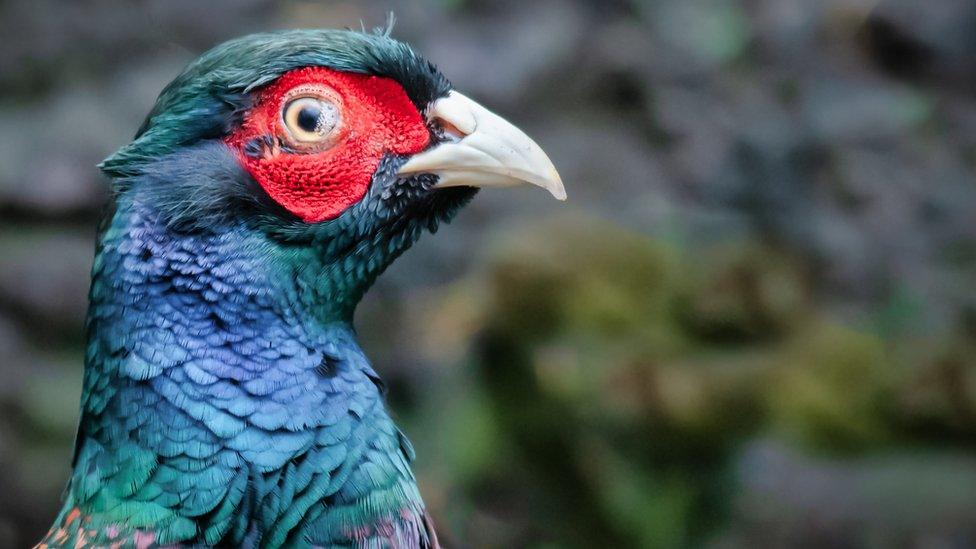Shooting group fears closure in bird flu row
Listen on BBC Sounds
- Published
A Wiltshire shooting group says it may have to close down if new licensing laws around bird flu are not reversed.
In March, general licences for shooting gamebird, such as pheasant, were no longer issued for 2025 on or around Special Protection Areas by Defra.
The move was over fears the gamebirds could infect important bird populations with bird flu. Natural England was tasked with considering licences on a case-by-case basis.
Chair of Bulford and Tidworth Garrison Shoot Hugh Carter said without a licence his shoot on Salisbury Plain would face closure. Natural England says licences can only be granted in "exceptional circumstances" where "clear measures" to cut transmission risk are taken.
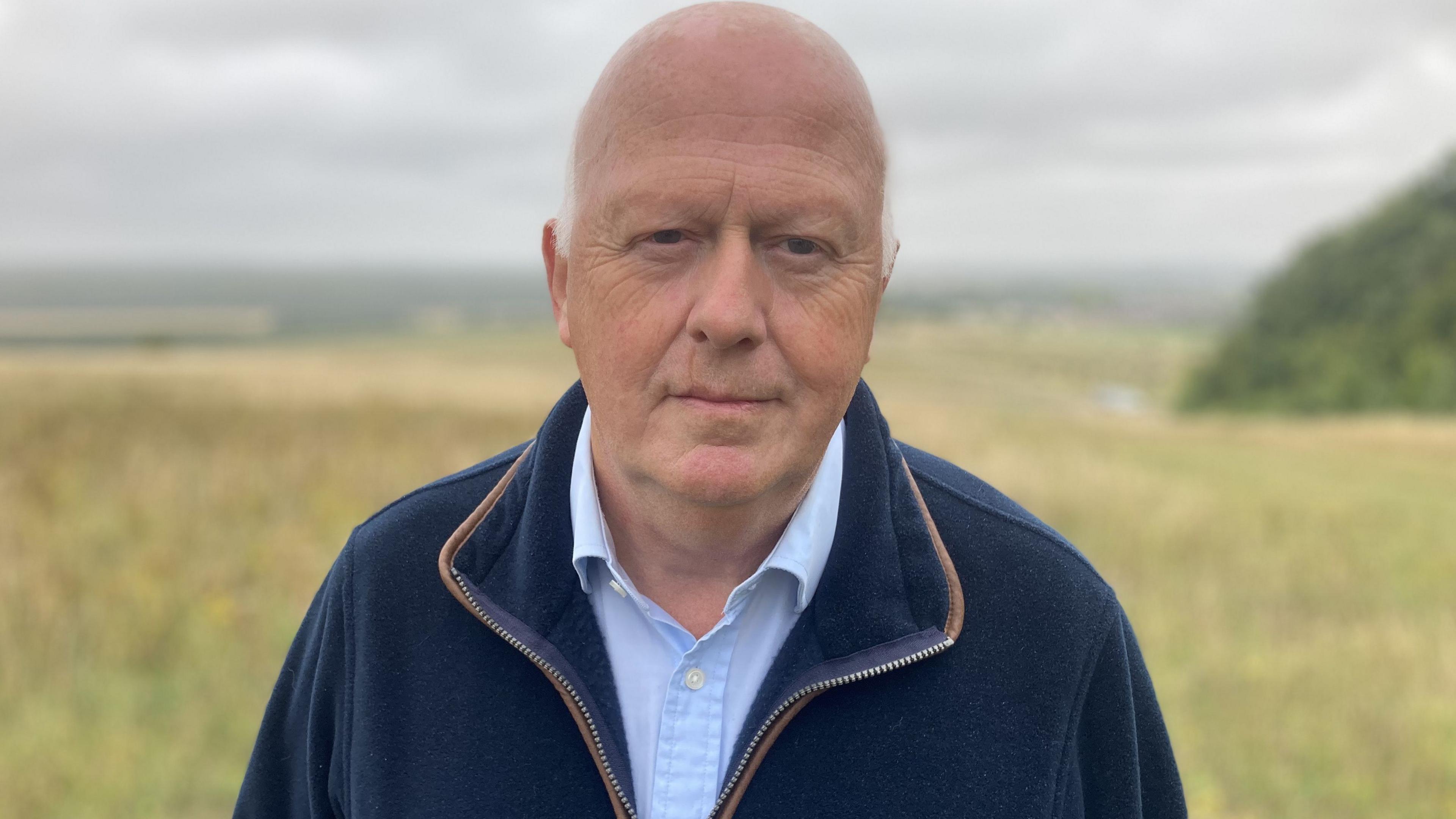
Hugh Carter, chairman and director for the Bulford and Tidworth Garrison Shoot, says his group might have to close because of the rules
Special Protection Areas (SPAs) are strictly protected sites where internationally important wild bird populations live, such as the ground nesting Stone Curlew, which live on Salisbury Plain for parts of the year.
Mr Carter said Natural England should reconsider its "broad brush" approach to avian influenza.
"The assessment over the whole country is at one level but not reflecting what's going on, on Salisbury Plain," said Mr Carter.
The club shoots on the military training area of the plain and has 250 members who are largely serving personnel, military veterans and their dependants.
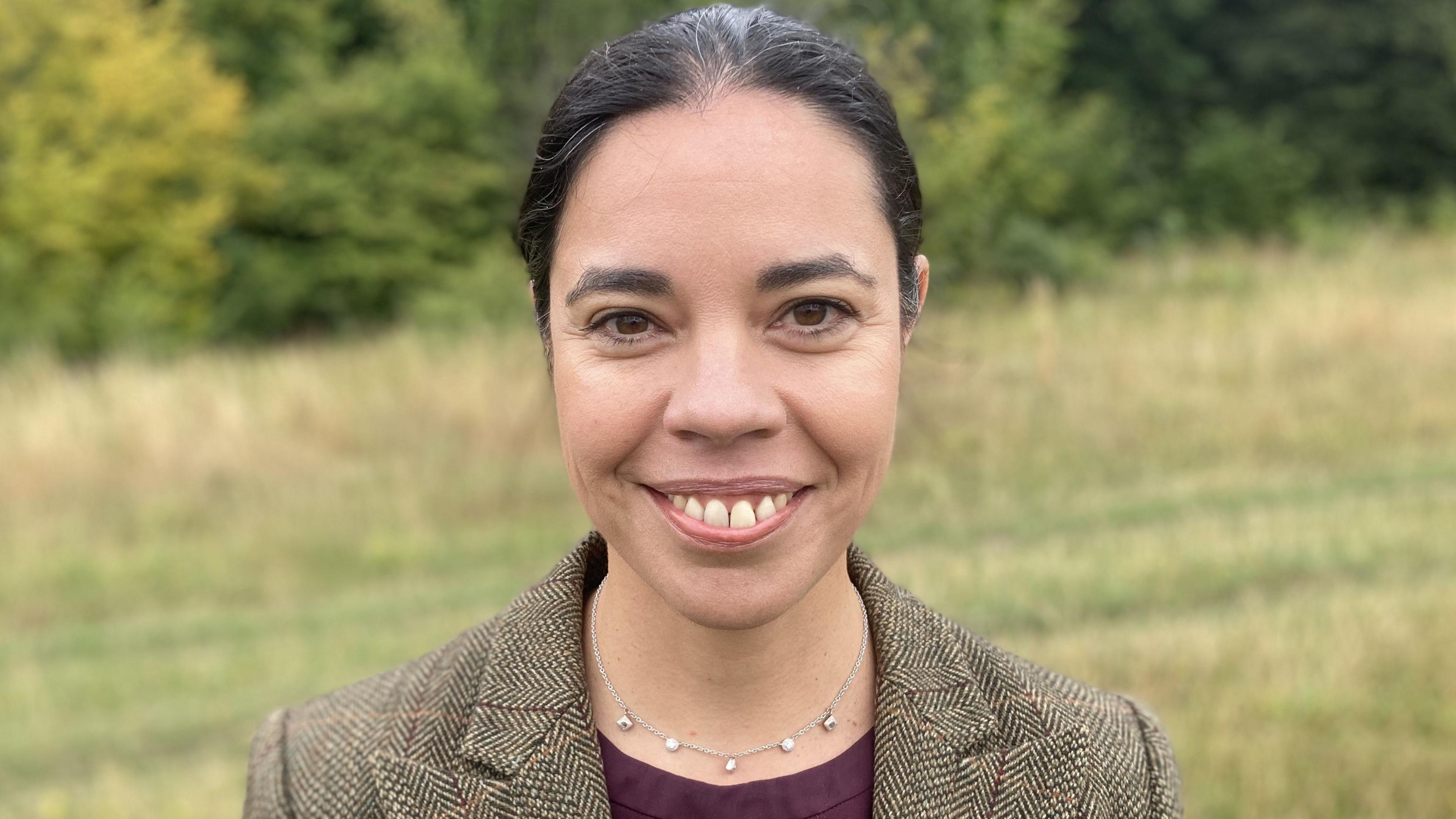
Marnie Lovejoy, of the British Association for Shooting and Conservation, says predator control and habitat management goes hand in hand with shoots
It also employs a gamekeeper for the area, beaters and a gun dog team. Game killed during shoots is given first to employees and then donated to the wider community for free.
Mr Carter said if the shoot folded, the impact would be far-reaching for his community: "If there's no shoot, there's no gamekeeper, no picker-ups, no beaters, no food going into the community, no field sports going to the military community.
"It's the end. There are eight shoots here on Salisbury Plain all of whom will go out of business in the not too distant future if there is not some measured and sensible assessment done by Natural England."
The British Association for Shooting and Conservation (BASC) is taking legal action against Natural England.
Marnie Lovejoy, BASC's deputy director for conservation, said the focus of Natural England was on "disease risk" and it had not "looked at the impact of the removal of the predator control and habitat management" that shoots provided.
Such management is achieved largely through the employment of a gamekeeper, who controls the number of animals, such as foxes, which eat protected species like the Stone Curlew.
'Thriving'
Ms Lovejoy said: "There is ample evidence that shows that protected bird species are thriving on areas where you have a shoot.
"Where predator management is undertaken, in our opinion, that whole section is missing in the [Natural England] assessment".
She said Natural England's approach risked undermining the very conservation goals it was meant to support.
Game management, predator control and habitat improvements, much of it privately funded and volunteer-led, were often inseparable from shooting activities, she added.
"Shooting contributes over £500m annually in conservation work – equivalent to 26,000 full-time jobs," said Ms Lovejoy.
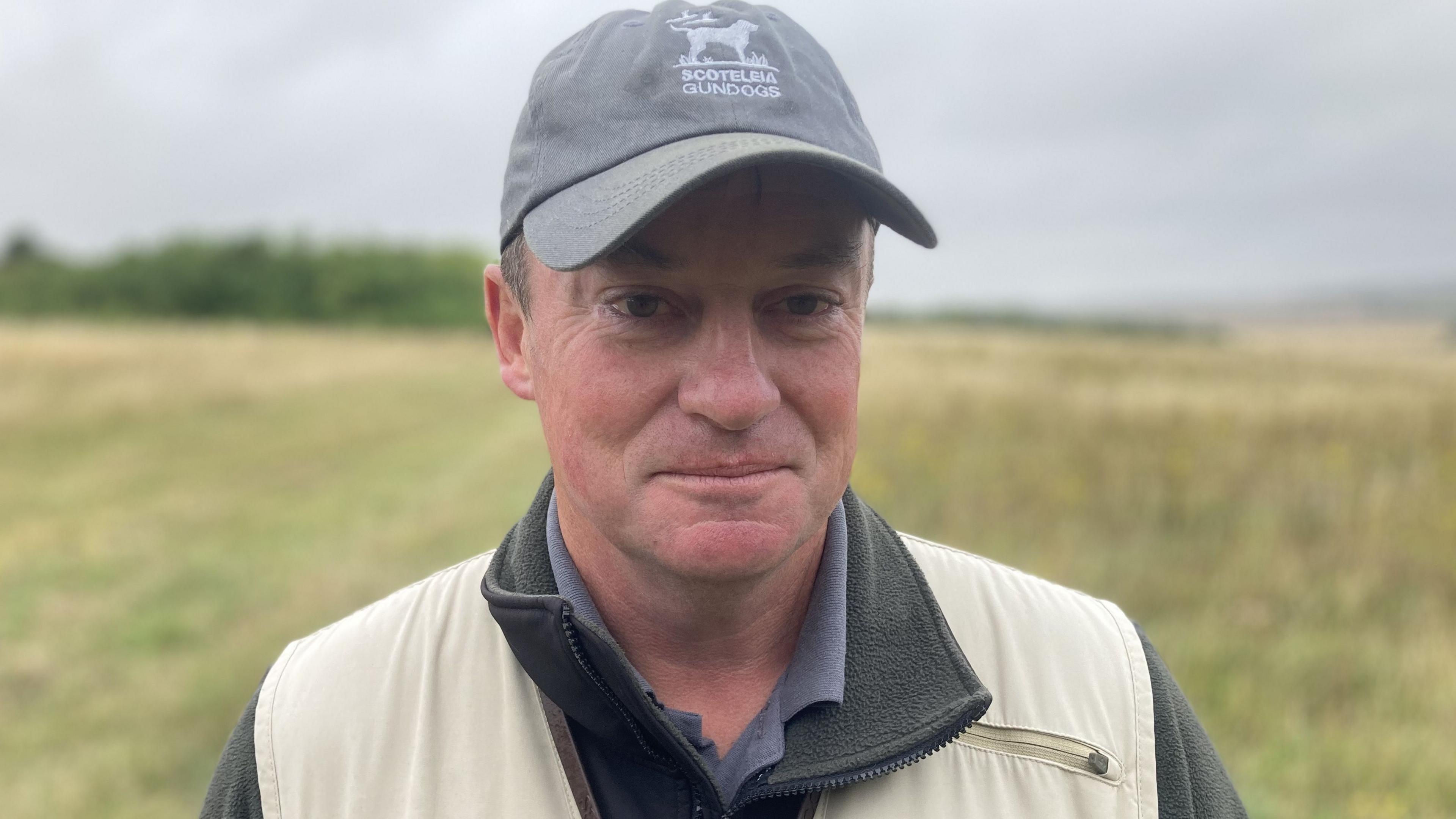
Mark Witham served 36 years in the Army and now works as a picker-up and gundog trainer
Natural England said it could not comment on ongoing legal matters but Matthew Heard, director of national delivery, said: "Natural England is responsible for protecting internationally important bird populations on Salisbury Plain from avian influenza, such as the Stone Curlew.
"We have been tasked by Defra with considering individual licences for game bird releases.
"But, given the very high risk of transmission of this deadly disease, government policy makes clear they can only be granted if there is evidence of exceptional circumstances and clear measures to reduce risk of transmission."
According to the Bulford and Tidworth Garrison Shoot, Minister for Animal Welfare and Biosecurity Baroness Sue Hayman recognises its "biosecurity protocols exceed Defra requirements", but Natural England refused the licence application.
Military Veterans
Mark Witham is a military veteran who served 36 years in the army and says he relies on the Bulford and Tidworth Garrison Shoot.
"I was physically and mentally broken when I left the army," he says, adding that with the shoot, "I'm outside with my dogs, talking to different people every day.
"It is fantastic for my mental wellbeing".
He said working on each shoot with his five dogs, retrieving injured game to quickly dispatch them, and collecting shot game, was his livelihood.
He said if shoots closed it would have a "devastating" impact on him. "I'll have dogs that I can't employ, they are my livelihood.
"I'm also a gundog trainer. I'd have to get rid of my picking-up team because I wouldn't be able to employ them."
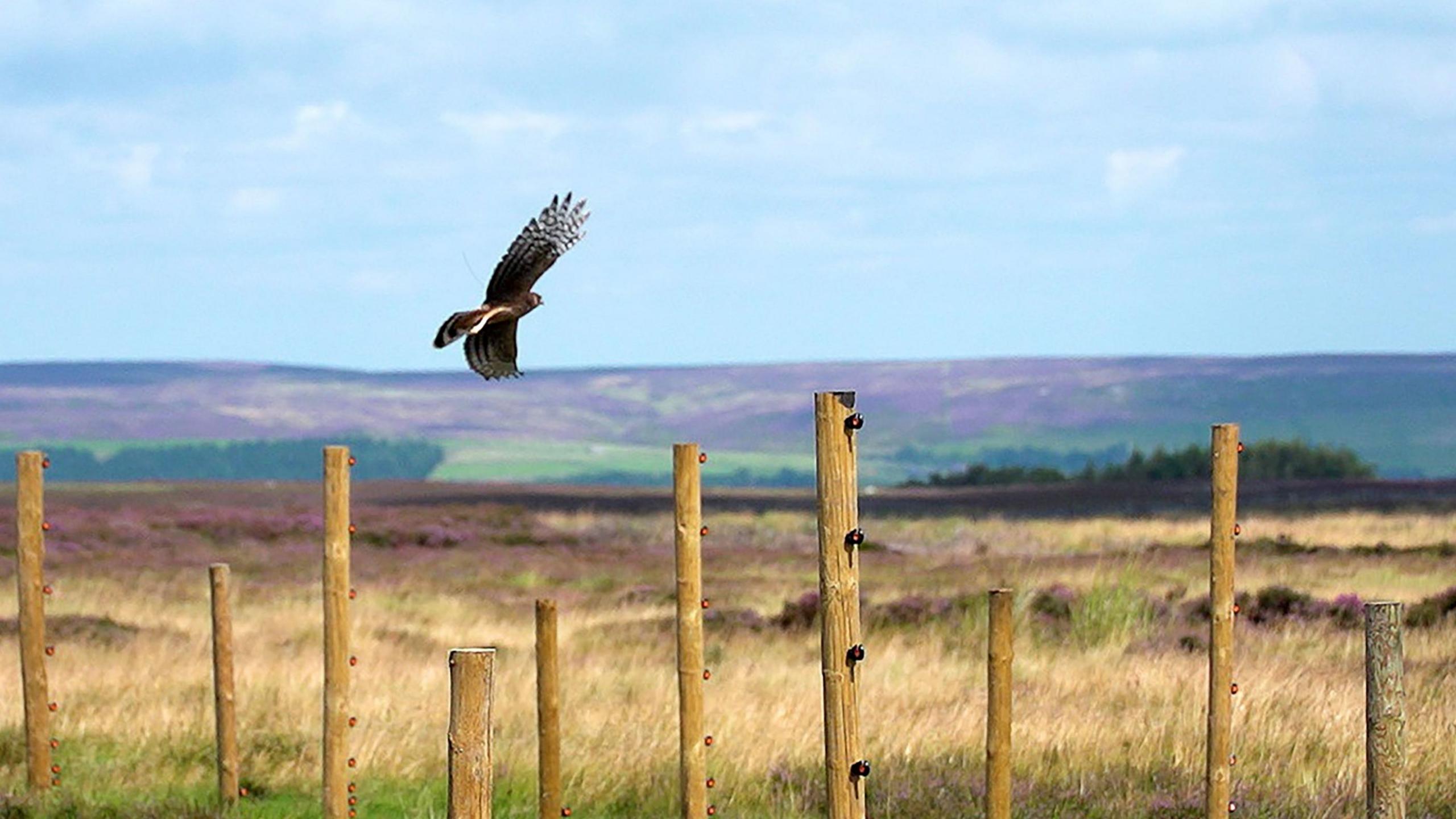
A hen harrier, one of the protected species that could be infected with avian influenza by gamebirds
The Royal Society for the Protection of Birds (RSPB) has shown support for the current guidance.
A RSPB spokesperson welcomed "the decision made by Defra to not allow gamebird release on SPAs under general licence and the precautionary approach Natural England are taking in granting individual licences".
The charity said it wanted the government to go further, calling for "all future releases of reared gamebirds and mallards [not just those on protected sites]" to be licensed.
Similar stories
- Published2 August
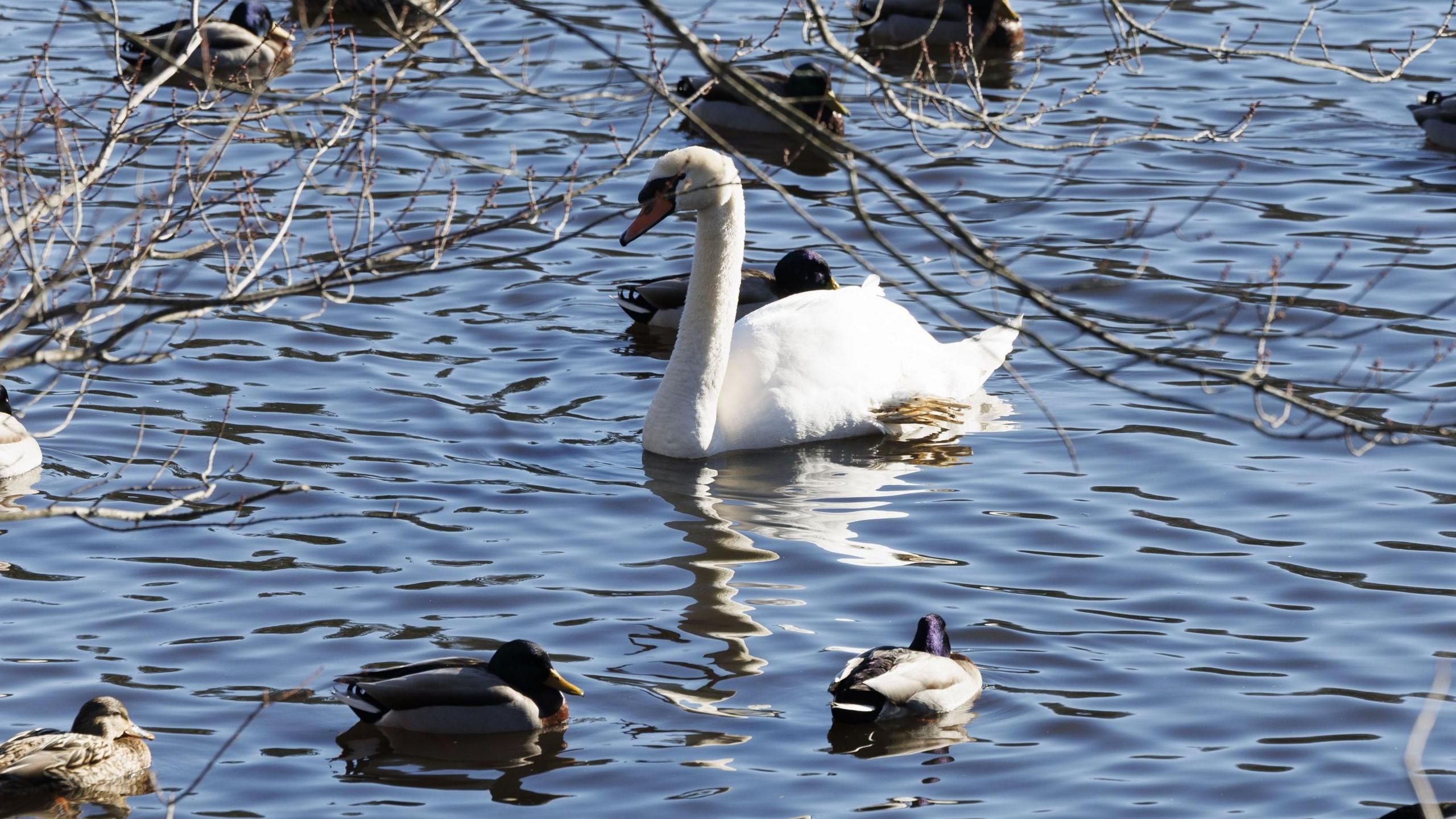
- Published31 July
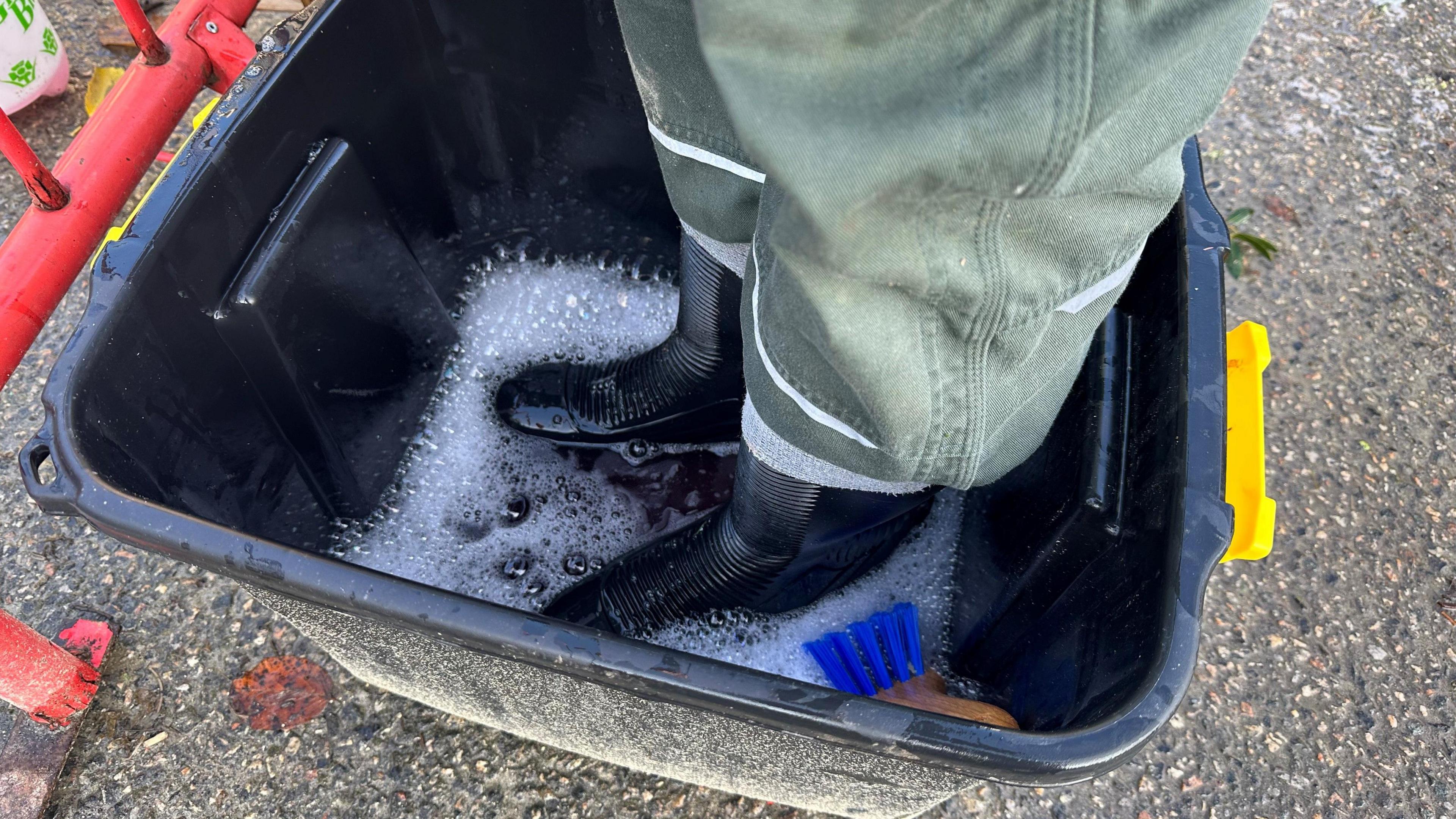
- Published27 March 2023
